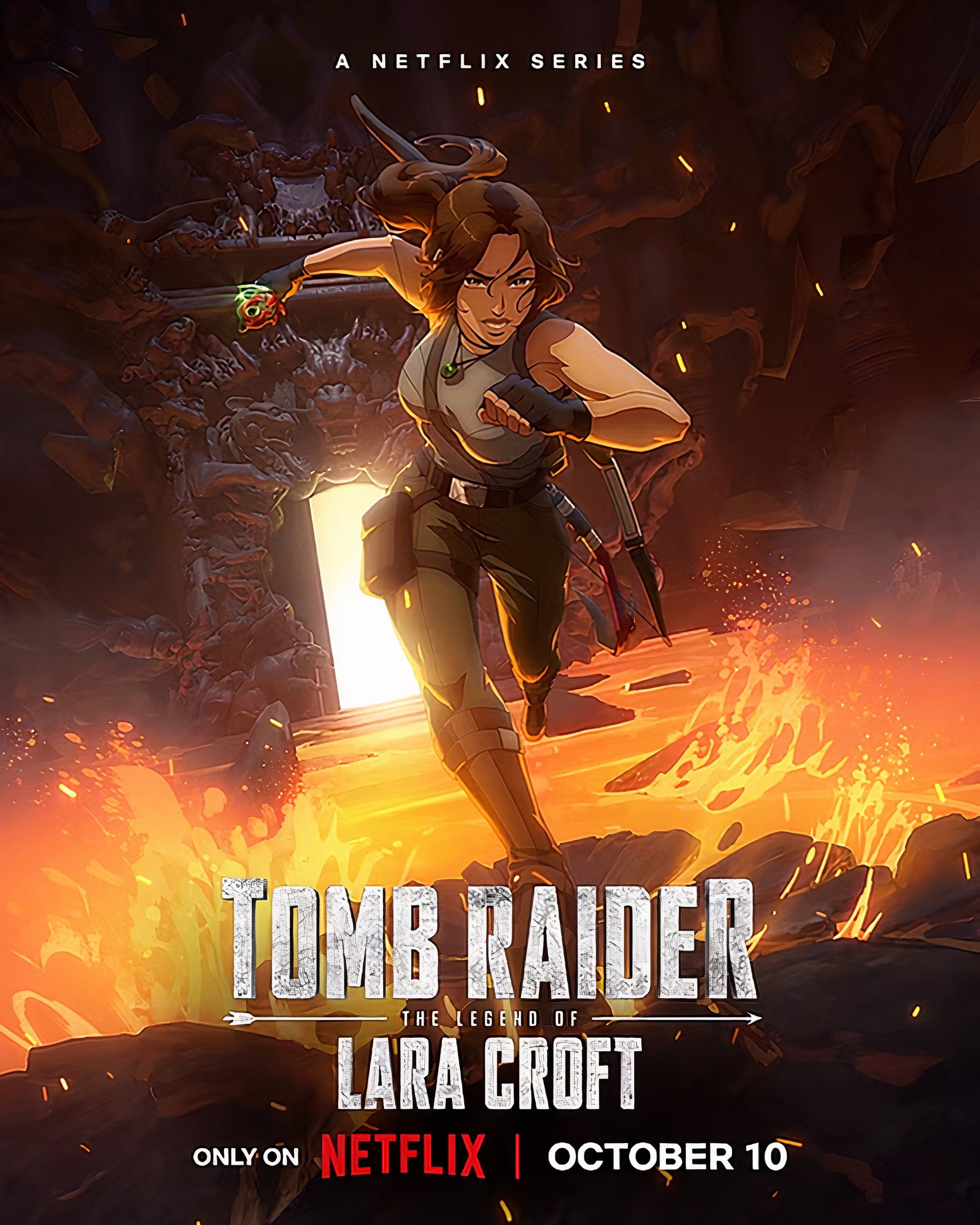Lara Rose OnlyFans: The Rise Of A Digital Phenomenon Explained
The way people connect and build careers online has shifted quite a bit, you know? It's almost like a whole new world has opened up for individuals looking to share their passions and connect directly with an audience. This change is very noticeable with the growing popularity of platforms where creators can share content and build a community, sometimes even earning a living from it. It’s a fascinating development, really, how some people become quite well-known just through their online presence.
When we think about someone like Lara Rose, whose name often comes up in conversations about OnlyFans, it highlights a much bigger picture. Her story, in a way, represents the broader movement of individuals becoming their own media outlets. This shift means creators can bypass traditional gatekeepers and connect with fans in a more personal, direct manner. It's a pretty big deal for how we see work and creative expression today.
This whole idea of a "digital phenomenon" isn't just about one person or one platform, though. It's about a fundamental change in how value is created and exchanged in the digital space. We're seeing more and more people finding success by building unique online identities and offering content that resonates with specific groups. It’s a dynamic space, and it continues to grow, apparently, changing what it means to be a public figure or even just a regular person making a living.
- Gay Black Guys
- Shih Tzu Before And After Haircuts
- Tyler James Williams Kids
- Diamond League Monaco 2024
- Tiger Woods And Girlfriend
Table of Contents
- Understanding Digital Personas: More Than Just a Biography
- The Creator Economy: A New Way to Work
- Building an Online Presence and Community
- Official Records Versus Online Identity: A Contrast
- The Appeal of Direct Connection
- Challenges and Opportunities in the Digital Space
- The Future of Digital Creation
- Frequently Asked Questions
Understanding Digital Personas: More Than Just a Biography
When we talk about a figure like Lara Rose and the way she has become known through platforms like OnlyFans, it's a little different from traditional celebrity. You see, the usual idea of a biography, with birth dates and early life details, doesn't always quite fit for someone whose public identity is largely shaped online. Many digital creators, like her, build a persona that is curated for their audience, you know? Their "story" is often told through the content they share and the interactions they have, rather than a fixed set of personal facts.
It's less about a formal life history and more about the ongoing narrative they create. This means their public "bio" is really a living, breathing collection of their posts, their interactions, and the way their audience perceives them. So, while we might typically expect a table of personal details for a public figure, for someone who has risen as a digital phenomenon, their online presence itself serves as their public identity. It’s a very modern way of being known, isn't it?
The Creator Economy: A New Way to Work
The rise of individuals like Lara Rose on platforms such as OnlyFans is a pretty clear sign of what people call the "creator economy." This is a whole new system where individuals, not big companies, are at the center of content creation and distribution. It's about people using their talents, whether it's art, music, education, or even just daily life insights, to connect with an audience directly. This shift is quite interesting, as it lets creators build a business around their unique offerings.
- White Party Food Ideas
- Forrie J Smith Movies And Tv Shows
- How Did Technoblade Die
- Who Is Aaron Rodgers Girlfriend Now
- Ruby Lend
This economic model lets creators earn money directly from their fans, often through subscriptions, tips, or exclusive content. It’s a departure from traditional advertising-based models, offering a more direct financial link between the creator and their supporters. This means creators have a lot more control over their income and what they produce, which is a big change for many, you know? It's a rather empowering setup for many talented folks.
For many, this represents a new form of independent work, giving them flexibility and a sense of ownership over their creative output. It’s a space where individual effort can lead to substantial rewards, quite literally, if they connect with the right audience. This model is reshaping ideas about careers and personal enterprise, making it possible for almost anyone with a unique voice to find an audience and, in some cases, a steady income.
Building an Online Presence and Community
Becoming a digital phenomenon, like the case of Lara Rose OnlyFans, really depends on building a strong online presence. It's not just about posting content; it's about crafting an identity that resonates with people. This involves choosing what to share, how to present it, and finding ways to stand out in a very crowded digital space. It requires a certain knack for connection, you know?
A big part of this process is fostering a sense of community around the creator's work. Fans don't just consume content; they often want to feel like they're part of something special, a little bit exclusive perhaps. This engagement can happen through comments, direct messages, or even live streams, creating a bond that goes beyond simple viewership. It's about making people feel seen and heard, which is quite important for loyalty.
For creators, this means actively managing their online interactions and responding to their audience. It's a continuous effort to maintain interest and keep the community vibrant. This ongoing connection is what often turns casual viewers into dedicated supporters, which is pretty essential for sustained growth on these platforms. It’s a very active role, you know, being a digital creator.
Official Records Versus Online Identity: A Contrast
It's interesting to consider how the official world handles information compared to how digital identities are formed online. For example, if you wanted to search for Michigan business information, including its registration status and details, you'd go through the mibusiness registry portal. This system, overseen by the state of Michigan's Department of Licensing and Regulatory Affairs (LARA), is built on verifying information from original sources. It’s a very structured process, ensuring that public records are accurate and current, as it is the practice of LARA to obtain and verify information from the original source.
This official approach to information, where licensing and registration records are made available by LARA for public convenience, provides a clear contrast to the often self-created and less formally verified identities seen in the digital creator space. While the Michigan Secretary of State’s department of licensing and regulatory affairs operates a business search page so that consumers and the general public can look up and review basic details about entities, online personas are largely built by the individual, with less external verification. You might need to enter a username and password to access some official portals, or register if you don't have an account, but the underlying data is typically government-backed.
The difference is quite stark, really. On one hand, you have a system like LARA, copyright 2025 state of Michigan mi.gov, home policies, accessibility, disability resources, statewide FOIA directory departments, where all users have the responsibility to determine whether information obtained from this site is still accurate and current. This implies a rigorous, official process. On the other hand, a digital phenomenon like Lara Rose on OnlyFans builds her presence based on content she creates and shares, with her audience often accepting her persona at face value. It highlights the varying levels of verification and trust built into different information systems, doesn't it?
The Appeal of Direct Connection
One of the main reasons for the success of digital phenomena, including creators on platforms like OnlyFans, is the promise of direct connection. Fans often feel a much closer bond with creators when they can interact directly, without intermediaries. This can make the content feel more personal and exclusive, which is a pretty strong draw for many people. It’s a way to feel more involved, you know?
This direct line of communication allows creators to respond to feedback, tailor content to their audience's preferences, and build a more loyal following. It's a two-way street, where the audience feels heard and the creator gains valuable insights into what their community wants. This personal touch is something traditional media often struggles to replicate, giving digital creators a unique advantage.
The feeling of supporting someone directly, knowing that your subscription or tip goes straight to the creator, also holds a lot of appeal. It’s a tangible way for fans to show appreciation and contribute to the creator's livelihood. This direct support model strengthens the bond between creator and audience, making the relationship feel more authentic and meaningful, arguably.
Challenges and Opportunities in the Digital Space
While the rise of digital phenomena presents many opportunities, it also comes with its share of challenges. For creators, standing out in a very crowded space can be tough. There's a constant need to produce fresh, engaging content and maintain a consistent presence. It’s a lot of work, actually, keeping an audience engaged over time.
Managing the business side of things, like finances, marketing, and community management, can also be quite demanding. Many creators operate as essentially one-person businesses, handling everything from content production to customer service. This requires a diverse set of skills, which isn't always easy to develop, you know?
However, the opportunities are also immense. The ability to monetize passions, build a global audience, and have creative freedom is incredibly appealing. For many, it offers a path to work that is personally fulfilling and financially rewarding, something that might not be possible in more traditional career paths. It’s a pretty exciting time for independent creators, in a way.
The Future of Digital Creation
The trajectory of digital phenomena, exemplified by individuals like Lara Rose on OnlyFans, suggests that the creator economy is here to stay. We're likely to see more platforms emerge, offering different ways for creators to connect with their audiences and earn income. The tools for content creation are also becoming more accessible, making it easier for new talent to enter the space. This ongoing evolution is quite something to observe, isn't it?
The lines between traditional entertainment and individual digital creation will probably continue to blur. More established figures might look to direct-to-fan models, and successful digital creators could transition into mainstream media. It’s a fluid landscape, constantly adapting to new technologies and audience preferences.
Ultimately, the success of these digital phenomena hinges on authenticity and connection. People want to feel a genuine bond with the creators they follow. As the digital world keeps evolving, those who can truly connect with their audience and offer something unique will likely continue to thrive, you know? It’s a testament to the power of individual expression in the modern age. Learn more about digital identity on our site, and link to this page about online communities.
Frequently Asked Questions
How do online creators make money?
Online creators often earn money through various means, including direct subscriptions from fans, one-time tips, and sometimes through selling merchandise or digital products. Some also use brand sponsorships or advertising revenue, but the direct fan support model is a very popular choice on platforms like OnlyFans. It's a pretty varied approach, depending on the platform and the creator's content.
What is the appeal of creator platforms?
The appeal of creator platforms comes from the direct connection they offer between creators and their audience. Fans can get exclusive content, interact personally with creators, and feel like they're directly supporting someone they admire. For creators, it means more creative freedom and a direct income stream, bypassing traditional gatekeepers. It’s a win-win, really, for many involved.
How has the internet changed personal careers?
The internet has dramatically changed personal careers by allowing individuals to build their own businesses and brands from scratch, often without needing traditional employment. It has opened up opportunities for people to monetize unique skills or interests, reach a global audience, and work flexibly from almost anywhere. It’s made independent work much more accessible, you know?
- Amberley Snyder Movies
- Hand Ladies Tattoo
- What Is The Ethnicity Of The Kardashians
- Examples Of Introduction Letters To Parents From Teachers
- Healing Prayer For The Sick Family Member

Lauren Cohan as Lara Croft The Tomb Raider Wallpaper 4k HD for Desktop

Tomb Raider: Lara Croft Tribute ( Angelina jolie Likeness ) - #4 by

Tomb Raider: The Legend of Lara Croft Improves Thanos' Terrifying MCU Arc